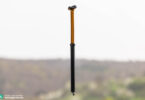Let’s be honest, who hasn’t tightened their bolts by feel during a bolt check or when making small adjustments to the cockpit instead of using a torque wrench? With the Feedback Sports Reflex Fixed Torque ratchet kit, including a torque socket in a compact multi-tool format, this need no longer be the case. We put it to the test.
Unpopular opinion alert: multi-tools are annoying! The manufacturers of tiny multi-tools have taken the miniaturisation craze too far. These compact multi-tools now have more functions than the Wenger Giant, which featured in the Guinness Book of Records as the largest Swiss Army Knife ever made, offering 141 functions, just so by the way. But they’re so small that they can’t reach some bolts, or you have to remove and reinsert the tool six times for one full turn of the bottle cage bolt. Then the tool has three different spoke nipple wrenches, and every size Torx key from 27 to 45 mm, none of which you ever need and just carry around for fun, but it doesn’t have something as simple as a slot screwdriver, which you could use for the display bracket. Mini ratchet kits promise to put an end to this, and they’re busy edging compact multi-tools out of the market. Although they’re not as versatile, they can be adapted by choosing the bits you need, and they’re easier to handle in many situations. They can be safer, too, thanks to special torque sockets. The Feedback Sports Reflex Fixed Torque Ratchet Kit follows this principle, consisting of a modular mini ratchet set with a 5 Nm torque socket. The set costs € 85, weighs 205 g, and has a few small surprises in store.
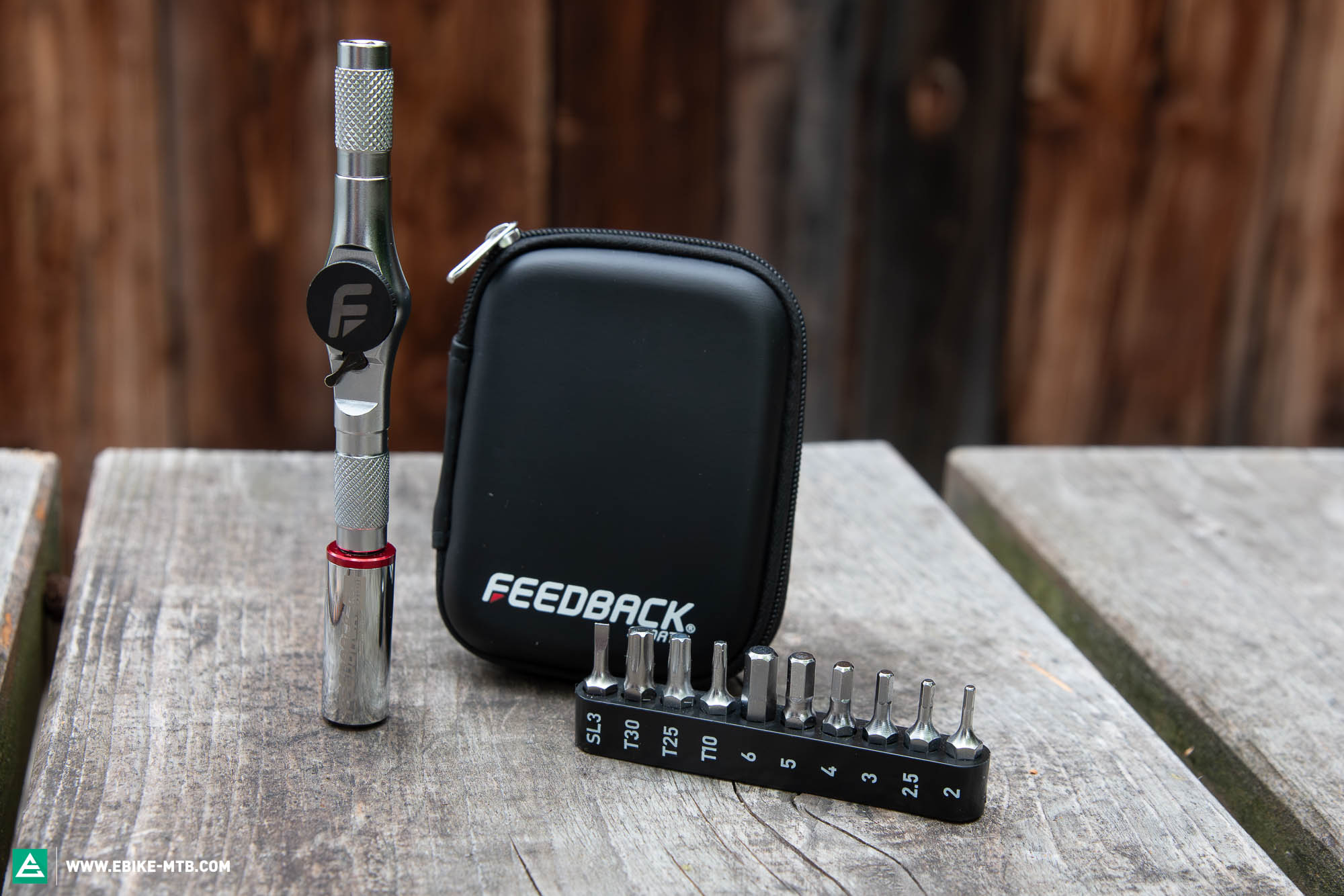
The mini ratchet comes with 10 commonly used tool steel bits included: 2; 2.5; 3; 4; 5; 6 mm hex keys; Torx 10, 25, and 30, and a slotted screwdriver. However, it’s missing an 8 mm hex key, which you often need for the pedals. The set also comes with a 25 mm extension, which fits into both ends of the ratchet. The ratchet can be used lengthways, like a long handle, like a T-handle, or like an ordinary L-shaped lever, allowing the tool shape-shift like a Tetris block. All bits are magnetic and stay securely attached. The tool features a very robust and high-quality finish. The ratchet itself and the extension have a knurled handle, which provides improved grip, especially if you use the ratchet like a long handle to loosen hard-to-reach bolts. The 5 Nm torque socket can also be used as an extension, resulting in a relatively long lever, which came in handy when loosening tight thru-axles or pedals. If you place the 5 Nm torque socket between the bit and the ratchet, it provides very clearly defined feedback when you exceed the torque while tightening a bolt. As such, over-tightening delicate bolt heads or sensitive components – like a carbon handlebar – becomes almost impossible. Note: the torque socket shouldn’t be turned counterclockwise, i.e. used to loosen bolts, or you’ll risk damaging it.
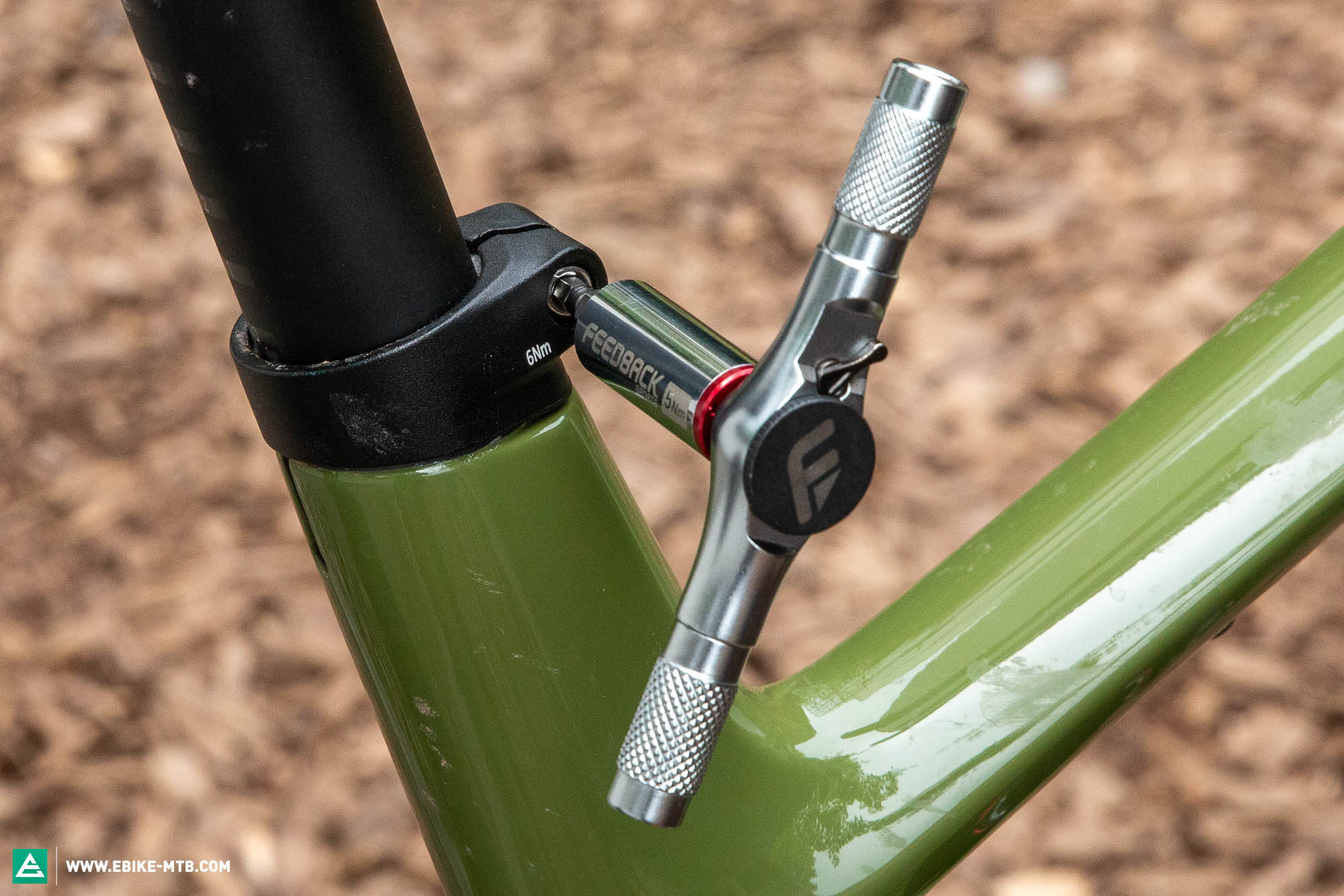
The practical 5 Nm torque socket is both the highlight of the set and its biggest weakness. Many seat post clamps, stems, and brake lever clamps fall exactly into this 5 Nm range, which you can meet perfectly with the ratchet (like the SRAM Matchmaker at 5.5 Nm, and Shimano brake lever clamps at 4–6 Nm for example, but always consult the user manual first). And these also happen to be the components that are most likely to get twisted and misaligned in the event of a crash. Riders who have carbon components like a carbon handlebar fitted on their bike stand to benefit the most, because these kinds of components can quickly get damaged if you overtighten the bolts. But you’ll still have to go by feeling on bolts that don’t fall within this torque range. Competing products like the Topeak Nano TorqBar or the SILCA T-Ratchet have the upper edge in this case with their variable torque attachments.
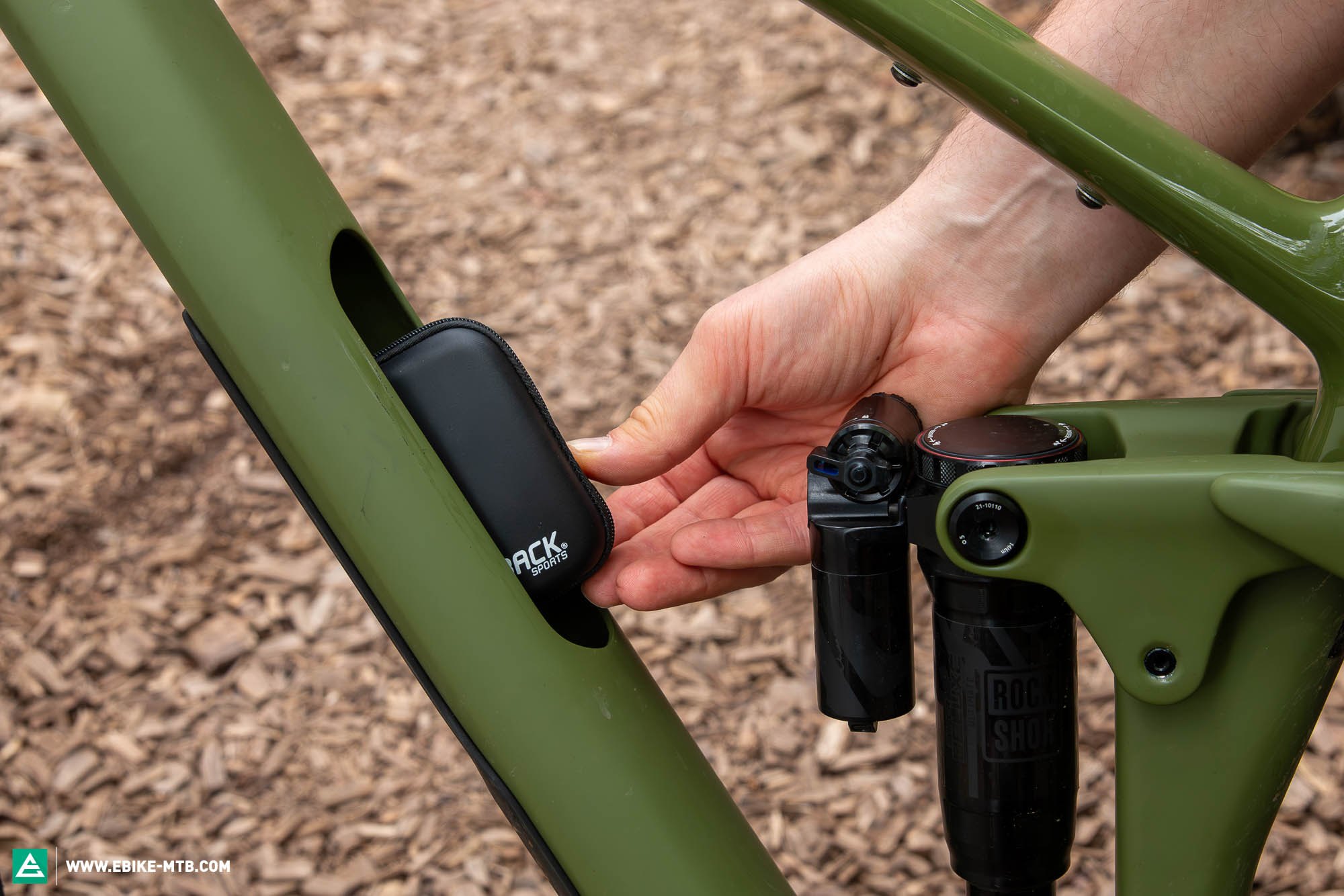
The locking mechanism of the ratchet engages every 6°. If you don’t know what to make of this, take a look at your Rolex: 6° corresponds to the angle between two minutes. This allows you to work very efficiently without having to remove and reinsert the tool. Particularly if you’ve got limited space to move the lever back and forth, as is often the case with the bottle cage bolts. The ratcheting direction lever is easy to flip with one finger while also locking securely into position, which prevents you from accidentally changing ratcheting direction.
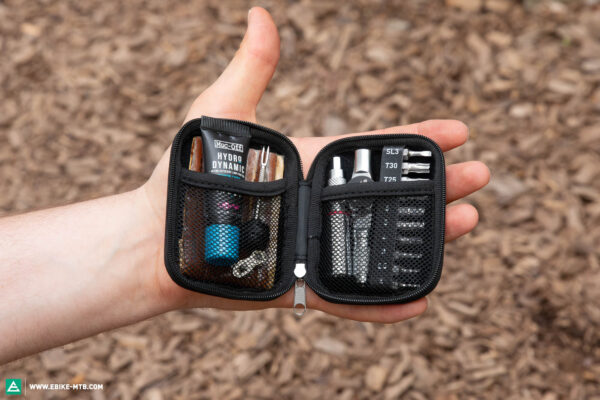
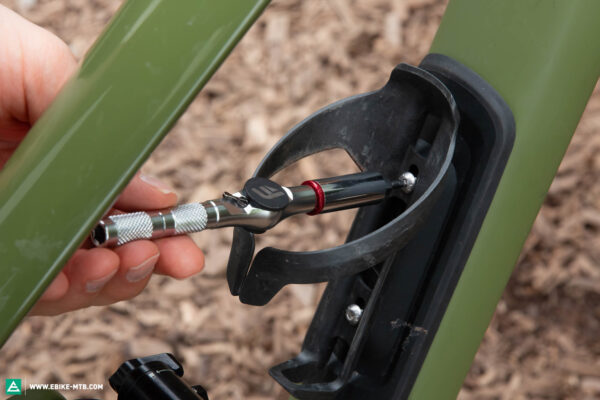
The ratchet comes in a convenient padded case that doesn’t just house the bits, the torque socket, and the extension piece, but will also accommodate a few additional trailside repair essentials, like a tubeless plug or chain lube. It isn’t big enough for a mini pump or CO2 cartridge, however, in which case the zipper won’t close. The case is small enough to fit in your pocket, and you do not run the risk of injuring yourself thanks to the padded construction, but the 200 g weight gets a little annoying. Unfortunately, it won’t fit in most down tube storage compartments with its 7 cm width either. Ideally, you’d want to carry it in a hip pack or backpack. If you were the type to carry your phone on your belt at the end of the 90s, you could do the same with the Feedback Sports ratchet set thanks to the belt loop on the back of the case. Just keep your eye out for the style police when you’re on the trail.
The price for the Feedback Sports Reflex Fixed Torque ratchet kit might seem a little steep at first glance. Thanks to the excellent handling, however, it will spare your nerves, and the solid workmanship ensures that you will enjoy the ratchet for a long time. The only drawbacks to the otherwise excellent package are the somewhat bulky case and being restricted to just one torque setting.
Tops
- excellent workmanship
- easy handling due to the modular design
- stress-free adjustment and tightening of sensitive components on the trail
Flops
- no 8 mm hex key
- fixed torque setting
- somewhat bulky case
For more Information visit feedbacksports.com
Did you enjoy this article? If so, we would be stoked if you decide to support us with a monthly contribution. By becoming a supporter of E-MOUNTAINBIKE, you will help secure a sustainable future for high-quality cycling journalism. Click here to learn more.
Words: Rudolf Fischer Photos: Manfred Schmitt








